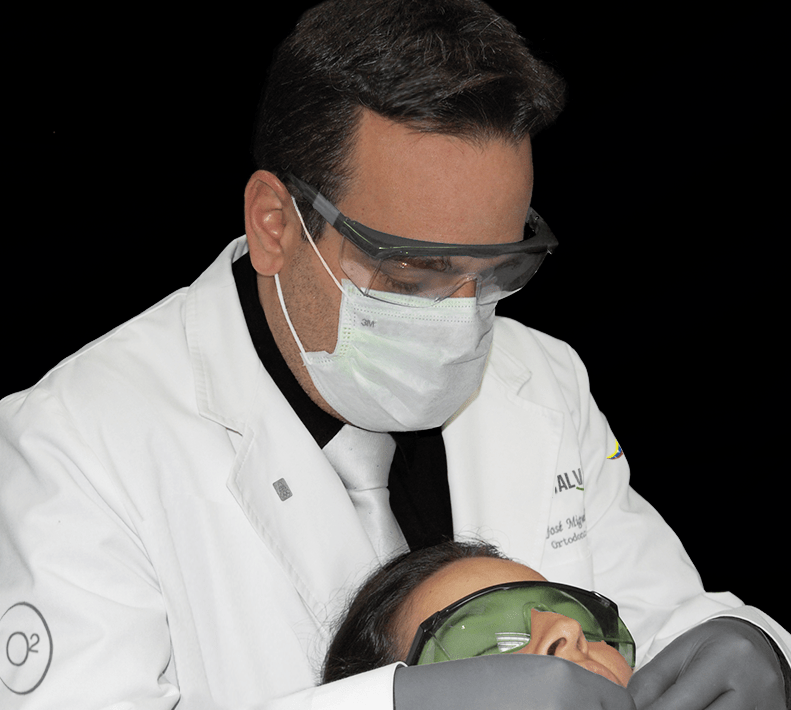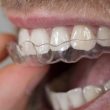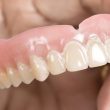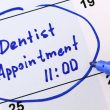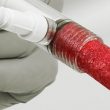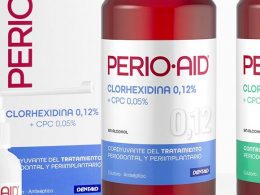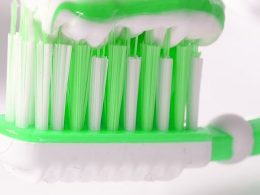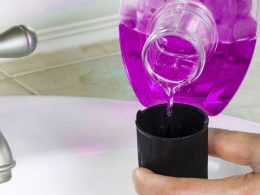Table of Contents
Your smile may be the first thing other people notice about you, but oral health is an essential part of your overall well-being. Good oral hygiene habits can prevent cavities, gum diseases, and other oral conditions. Therefore, regular dental visits and proper home care will ensure that your teeth and gums remain healthy for many years.
In the following, we will try to detail and discuss why oral health is so important and provide some tips on how to maintain a healthy mouth and strong, healthy and beautiful teeth.
1- Brush Well and Never Forget to Floss
The two most important habits of all are brushing and flossing, as they are the only way to prevent cavities and gum diseases. Brushing and flossing not only prevents the accumulation of dental plaque, which is the main cause of cavities, but also reduces the chances of developing infections and periodontal diseases.
Dentists usually recommend that people brush their teeth, at least, twice a day; always with a good brush (soft or medium bristles), a fluoride toothpaste and a good manual technique. Well now, the ideal is to do it after each meal or preferably 3 times a day, brushing at night (before going to bed) being the most important of all. This is because during sleep, salivary secretion decreases and the teeth are more susceptible to acid attack by bacteria.
On the other hand, the correct use of dental floss removes plaque and food particles from places that the toothbrush cannot reach easily, mainly under the gums and between the teeth. As the accumulation of plaque in these areas can cause interdental cavities, the daily use of dental floss is considered essential.
Practicing good routines and daily cleaning habits at home is one of the best resources that exist in preventive Dentistry, and it is capable of generating a great positive impact on your oral health. These two habits simply make the difference between health and disease in our mouth.
2- Choose Products with Fluoride
Fluoride is one of the main allies in the fight against tooth decay. It can be a great idea to wear it on a regular basis to protect your teeth.
Dental offices use fluoride many times when patients complete a procedure, but there are other products that contain active fluoride as an ingredient.
If you want to add fluoride to your routine, find a toothpaste or mouthwash that contains it. However, the public water in the vast majority of cities contains sufficient amounts of fluoride, which means you should not be overly concerned.
3- Watch Your Diet
If you want to take your oral health seriously, it is important to consider what you eat and drink.
A diet high in sugar and carbohydrates can trigger your predisposition to tooth decay, since these biomolecules are the main nutriment for the bacteria contained in dental plaque. There are really countless epidemiological studies that correlate sugar consumption with the prevalence of cavities, and in which a clear association between frequency of consumption, the intake between meals and the development of dental caries is demonstrated.
Therefore, it is best to avoid snacking between meals and limit the consumption of sugars as much as possible.
On the other hand, it has been proven that deficiencies of vitamins A and D, calcium and phosphorus; can cause alterations in the dental development and composition of the dental structure. In protein-calorie malnutrition so common in developing countries, a decrease in immunoglobulin A has been detected in saliva, which could increase susceptibility to caries.
The good news is that sugar-free gum that uses non-caloric sweeteners, can help prevent tooth decay. The sweet taste and chewing stimulate the flow of saliva, which contributes to the prevention of cavities. Similarly, the daily consumption of fibrous foods is highly recommended, since their chewing enhances autoclysis (unconscious movements of the tongue, cheeks, and lips that clean the mouth immediately after chewing) and salivary secretion.
4- Use Splints and Mouthguards
If you or your children play sports or participate in outdoor activities, it is important that you protect your teeth from any blow or trauma. An excellent habit of preventive Dentistry is to wear a mouthguard during sports, especially contact sports.
A night splint can also help protect your mouth from tooth clenching or bruxism. Bruxism can contribute to tooth wear and can lead to malocclusions, masticatory dysfunction, and TMJ (temporomandubular joint) syndromes. Better to wear out your splint than wear out your teeth!
5- Go to the Dentist Regularly
Carrying out professional dental checkups and cleanings every 6 or 12 months (depending on your particular oral health condition), is a preventive attitude that brings gold to our dental health, avoiding the appearance of cavities or periodontal diseases.
It goes without saying that, when diseases are diagnosed and treated early, preferably in their initial phase; their consequences are minor, their treatment faster and more effective, and their prognosis much more favorable. Treating a small cavity of caries (which may not even require anesthesia) is not the same as treating a sore tooth with pulp necrosis and acute periapical abscess due to its advancement.
For small cavities we will only have to remove a minimum amount of tissue and place a small amount of composite. For the necrotic tooth, we will have to make the emergency, give antibiotics, do a root canal, deobturate, make an artificial post and core, grind the tooth, take impressions and make a ceramic crown. And all for not attending the consultation on time!
And the same goes for periodontal diseases. In fact, between 90 and 95% of severe oral mutilations are observed only in people who do not usually go to the Dentist regularly.
6- Stop Smoking
Definitely, cigarettes and oral health are incompatible!
The oral cavity is one of the locations where the harmful effects of tobacco are most clearly manifested, since it constitutes the main channel of entry, together with the respiratory tract, of smoke into our body.
At the oral level, the most serious effect produced by tobacco consumption is oral cancer, but we can talk about a large number of disorders or diseases directly related to this habit. Among the most common we can mention the dental pigmentations, halitosis or bad breath, increased risk of periodontitis and increased susceptibility to dental caries.
Smoking not only increases the risk of developing periodontitis by four, but also significantly affects the response to periodontal therapy, both surgical and conservative. One of the first periodontal alterations is gingival recession and epithelial hyperplasia. Between 25 and 30% of smokers, present gingival recession. On the other hand, high levels of inflammatory mediators such as interleukin-1 and prostaglandin E2 have been detected in smokers, which can induce gingival hyperplasia and the formation of periodontal pockets.
So if you want to have a healthy mouth and keep the vast majority of your teeth forever, you will need to quit smoking. There is no other way!
7- If You Need It, Consider Orthodontics
Orthodontics is capable of improving oral health on several levels, and that is why it is considered a powerful preventive Dentistry tool. Most patients who decide on this treatment only hope to obtain a significant cosmetic benefit, but its advantages go much further.
To begin with, we must know that straight and aligned teeth are much easier to clean and maintain than crowded or malpositioned teeth, which generally impede brush penetration and make flossing difficult. Therefore, the rates of cavities and periodontal diseases are always lower in people with straight and aligned teeth.
In addition, from the functional point of view, premature contacts, excursive interferences will be eliminated and there will be a more balanced distribution of occlusal forces; which in the medium and long term will be vital to prevent the development of bruxism and other temporomandibular disorders.
So if your teeth look crooked, braces, aside from straightening them; they will protect and will surely give them many more years to live.
8- Stay in Good General Health Status
Numerous systemic disorders can affect the periodontal insertion apparatus and cause resorption of the gingiva and alveolar bone. Although many of these disorders are rare or infrequent, others are not, and they often cause infection, inflammation, mobility, and loss of teeth.
So avoid as much as possible, or at least keep under control, certain systemic conditions such as obesity, diabetes mellitus, high blood pressure, emotional stress, depression and those diseases that affect the immune system; as it will be a key factor in ensuring the health of your gums and the longevity of your natural teeth and dental implants.
To give just one example, an uncontrolled diabetic patient will do nothing with brushing well, flossing, and go to a cleaning and control appointment every 3 months; if he does not maintain normal blood sugar values. No method of dental hygiene or prevention can overcome the degenerative effect of uncontrolled chronic systemic pathologies that affect the tissues of the oral cavity.
“In the Great Majority of the Cases, the Pains, Emergencies and Dental Losses; Are Nothing More Than the Consequences of Carelessness and Disinterest of the Person”.
DENTAL TIP
Remember that … “Prevent Is Cure in Health”
By now you should have an idea about the best preventive Dentistry habits that will help protect your teeth. All that is needed is some knowledge and a willingness to improve your oral health and make sure your teeth stay in good shape for many years. Worrying about your teeth now will help prevent the need for costly and traumatic repairs in the future, and most of all, the misfortune of losing them and having to wear dentures.
If you are aware and take these tips into account, you will surely improve your quality of life in the future, and save large amounts of money that you can invest or enjoy with your family or in truly enjoyable activities.
Are You Facing an Unaffordable Quote for Dental Treatment?
Are you thinking of getting cosmetic dentistry or dental implants in Venezuela? The rising cost of dental care in many countries is driving the dental tourism movement as people seek more affordable dental work abroad. If you are facing an unaffordable quote for dental treatment in your home country, DENTAL VIP could be a much cheaper alternative with savings of 60% or more.
Every year thousands of international patients visit Caracas to take advantage of high quality healthcare at affordable prices. Dental procedures in Venezuela are on par with treatment provided in any “developed” country of the world. The cost, however, is significantly less.
At DENTAL VIP we offer a wide range of world class dental treatments such as dental implants, crowns and bridges, smile design, dental veneers, oral surgery and zygomatic implants; among others.
Furthermore, we are available to assist you with transfer and accommodation options while visiting Caracas for dental care. Contact us today and make your next treatment in Venezuela!
